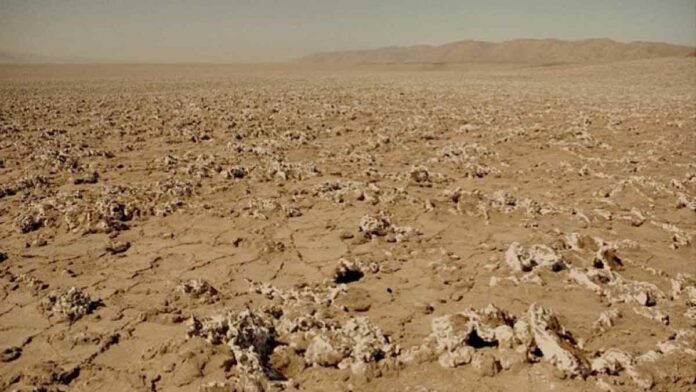No life has yet been discovered on Mars. But it is exciting to speculate on the conditions that might allow it. The cellular processes that regulate microorganism adaptation to perchlorates have been studied by scientists. The study was led by the Technical University of Berlin (TU Berlin) and the Leibniz Institute of Freshwater Ecology and Inland Fisheries (IGB). If microorganisms could genetically adapt their stress response to this salt, their survival on the Red Planet might be possible.
The paper describing the team’s research was published in the journal Environmental Microbiology.
Energy and the availability of CHNOPS are required for life as we know it. Carbon, hydrogen, nitrogen, oxygen, phosphorus, and sulphur are the elements represented by this acronym. Trace elements and liquid water are also required. On Mars, much of this is available. Sunlight or chemical processes can provide energy. Carbon is also available through the thin but carbon dioxide-rich atmosphere. Other essential elements are abundant on the Mar’s surface in what is known as regolith.
Liquid water is difficult to obtain due to the low atmospheric pressure of approximately 6 millibars. The average temperature is also below freezing. The formation of temporarily stable salt solutions via deliquescence is one of the few ways to produce water near the surface of Mars.
Salt absorbs and dissolves in water from the atmosphere during this process. Perchlorates easily absorb water from the atmosphere and lower the freezing point of water. It is among the many hygroscopic salts found on Mars. They are also found on Earth on rare occasions in extremely dry deserts.
This water is theoretically enough to support the metabolism of certain microorganisms. Perchlorates cause stress in the cell in an unknown way until now.
The researchers compared the perchlorate-specific stress response of the yeast Debaryomyces hansenii to commonly known salt stress adaptations. They have used a proteomics protocol developed by the Robert Koch Institute (RKI).
The researchers discovered that the stress responses to sodium chloride and sodium perchlorate share many metabolic features. This includes signalling pathways, increased energy metabolism, and osmolyte formation.
More information: Jacob Heinz et al, Perchlorate‐specific proteomic stress responses of Debaryomyces hansenii could enable microbial survival in Martian brines, Environmental Microbiology (2022). DOI: 10.1111/1462-2920.16152

